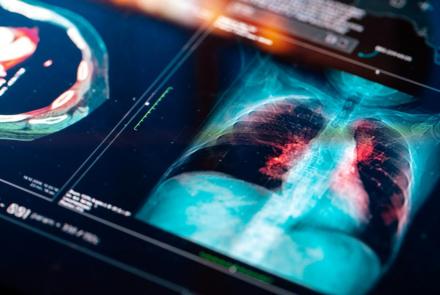Not knowing the facts about heart disease can put your health at risk. For Heart Month this February, Dr. Jared Corriel, MD, FACC, RPVI, Director of Echocardiography at Nyack Hospital and a cardiologist with Highland Medical P.C., Advanced Cardiovascular Care debunks common myths about heart disease.
Myth: If I feel fine, I must not have heart disease.
Fact: Anyone with multiple risk factors for heart disease—such as diabetes, high blood pressure, and high cholesterol—is at much greater risk of heart disease, no matter how good they feel. Smoking and a family history of early heart disease also puts you at greater risk. That’s why it’s so important for people with these risk factors to visit their doctor regularly.
Myth: If I don’t feel chest pain, I’m not having a heart attack.
Fact: Some people, especially women, don’t have the classic signs of chest pain when they are having a heart attack. Signs of a heart attack in women can include nausea, vomiting, sweating, and back or jaw pain.
Myth: If I have a stent, I’m no longer at risk for a heart attack.
Fact: A stent is a tiny wire mesh tube that props open an artery and is left there permanently. When a coronary artery (an artery feeding the heart muscle) is narrowed by a buildup of fatty deposits called plaque, it can reduce blood flow. Placing a stent in the artery will not save your life or prevent future heart attacks, but it can alleviate your symptoms of chest pains or shortness of breath with exertion.
Myth: I’m only in my 30s—I can’t have heart disease.
Fact: Developing heart disease is a lifelong process. It’s like a car—if you don’t take care of your heart early on, it won’t last as long. People in their 30s and 40s can have heart attacks—especially those who smoke, use drugs such as cocaine, and have multiple risk factors for heart disease such as diabetes, high blood pressure, and high cholesterol.
Myth: If I feel OK I don’t have high blood pressure.
Fact: People typically don’t have symptoms of high blood pressure, or hypertension, unless it’s exceptionally elevated. In recent years we have found that even low-grade hypertension raises the risk for heart attack and strokes. Because of these findings, the American Heart Association issued new guidelines recently that state high blood pressure should be treated earlier with lifestyle changes and in some patients with medication – at 130/80 mm Hg rather than 140/90. By lowering the definition of high blood pressure, the guidelines recommend earlier intervention to prevent further increases in blood pressure and the complications of hypertension.
Myth: I shouldn’t exercise after having a heart attack because I’m worried about overstraining my heart.
Fact: If you’ve had surgery after a heart attack, then your doctor will tell you how long you should rest. But as soon as you get the green light from your doctor, you should start moving. Studies have shown that getting 150 minutes per week of exercise is associated with a lower risk of heart attack, stroke and heart failure. A great way to exercise is through a cardiac rehabilitation program. These programs show you how to slowly and safely increase your exercise regimen after a heart attack, to reduce your risk of having another one. Ask your doctor about where to find a cardiac rehab program near you.
Myth: Heart disease runs in my family, so I know it’s in my future, too.
Fact: Today, we know so much more about how to prevent heart disease than in previous generations. Our parents were more likely to be smokers and live a sedentary lifestyle. You can absolutely change your heart disease risk profile, even if it runs in your family. We have a variety of advanced tests that help us find heart disease early, and ways to treat it earlier, to lower the risk of heart attacks and strokes. If you have a family history of heart disease, talk to your doctor about how to reduce your own risk.
Myth: I don’t need to get my cholesterol checked until I’m middle-aged.
Fact: The American Heart Association recommends that adults get their cholesterol checked starting at age 20. You should have your cholesterol checked routinely by your physician. Cholesterol can build up in the arteries over many years before it starts to cause problems. If high cholesterol levels are detected early, you may be able to lower them through diet and exercise. If you need to take cholesterol medicine, the earlier you start, the better the chances are of avoiding heart problems.






